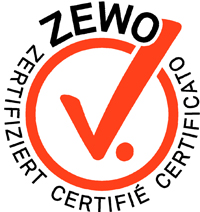International Program 2021 – 2024
In collaboration with two partner organizations (FH Switzerland and Mission Lepros) and within the Interaction umbrella, Morija contributes to the implementation of a joint “Learning 360” program, with the aim of strengthening the resilience of the most vulnerable in the southern countries. This vast multi-sectoral program is a first in the history of Morija and recognizes the commitment, experience and professionalism of the association and its partners in development cooperation.
Organized around its six historic intervention sectors, the program implemented by Morija aims to improve the living conditions of the most vulnerable people in Burkina Faso, Togo and Chad. The educational dimension will be the anchor of all actions, seeking to promote an appropriate learning environment for children and disadvantaged people. Each year, 50,000 people will benefit from the actions, i.e. 200,000 beneficiaries over the 4 years of the program.
3 main objectives are targeted in the program:
Goal 1: The basic living conditions of marginalized groups are improved
Basic living conditions will be improved for vulnerable communities, especially those affected by conflict, by ensuring food security, access to health care and water-sanitation-hygiene (WASH). Covering basic needs is essential for achieving learning outcomes, coupled with the implementation of educational content across different sectors not specifically related to education. This combined approach will bring more resilience to vulnerable groups in fragile contexts.
Goal 2: Opportunities for quality education increase for marginalized children and youth.
Quality basic education for all is a fundamental human right. By relying on rainbow schools, the actions will improve the educational environment but also the quality of teaching in schools in Burkina Faso and Chad, where teachers will be supported in the implementation of a pedagogy. active. Particular attention will be paid to ensuring that education can be provided in safe and hygienic conditions that promote learning and increase girls’ school attendance. Schools will have safe and clean drinking water, school latrines, an appropriate sewage disposal system, menstrual hygiene facilities and a school garden to teach students about sustainable agriculture and the challenges of a respected environment.
Goal 3: The resilience capacities of vulnerable groups are strengthened through lifelong learning and greater participation.
To promote the resilience of food production, an agroecological transition of small rural farming families, faced with land degradation and the effects of climate change, will be promoted in Burkina Faso and Togo. In order to promote a scaling up of agroecological techniques, smallholder farmers will be trained to become promoters of these practices. In Burkina Faso and Chad, women’s economic resilience will be strengthened through the creation of savings groups that will serve as insurance, improve access to loans to invest in their businesses and, ultimately, be a source of empowerment for women. the women. By having access to credit, microenterprises run by women will be encouraged.
Budget and funding
The budget for the period 2021 – 2024 amounts to CHF 6’837’294.-
Through the Interaction umbrella, the program is co-financed by the Directorate for Development and Cooperation (DDC), Federal Department of Foreign Affairs, to the tune of approximately 40%.
SDC support over 2021 – 2022: CHF 1’238’279.-







